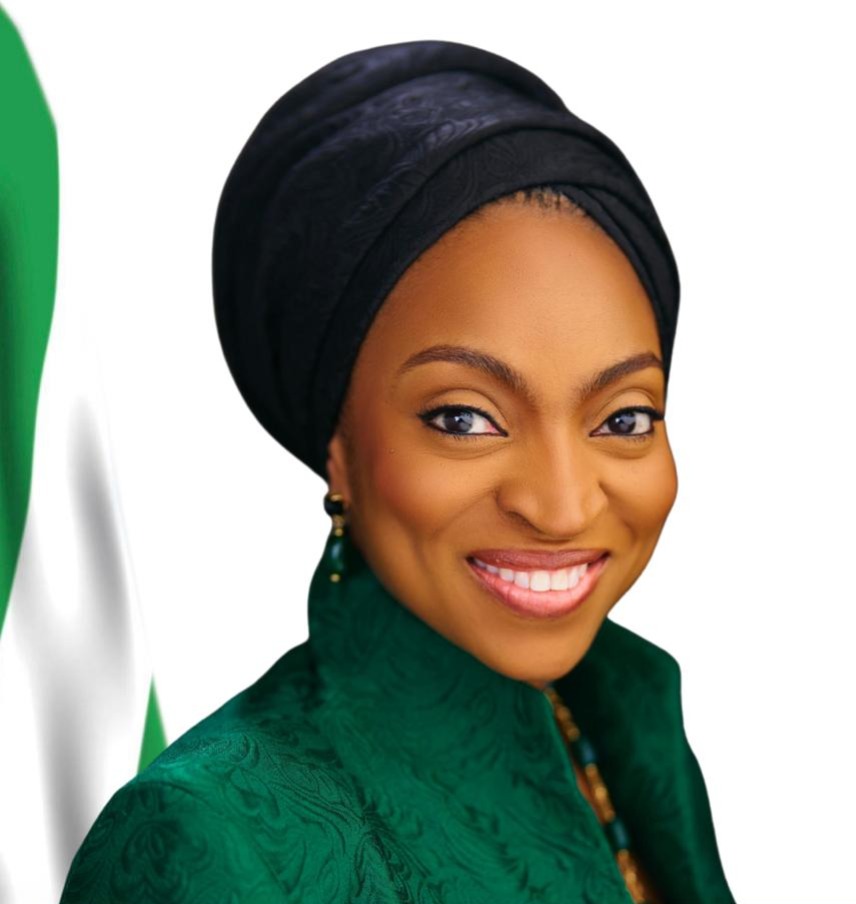Jumoke Oduwole stands at the helm of Nigeria’s industrial and trade future as the nation grapples with a series of economic hurdles. As the country faces a sharp decline in foreign direct investment and an exodus of multinational corporations, Oduwole has stepped into the role of Minister for Industry, Trade, and Investment at a critical moment.
In 2023, foreign investment inflows plummeted by 26.7%, dropping from $5.3 billion in 2022 to just $3.9 billion. The departure of major companies such as Unilever, GlaxoSmithKline, and Procter & Gamble, coupled with the withdrawal of international oil giants like TotalEnergies, ExxonMobil, Eni, and Shell, underscores the growing concerns about Nigeria’s business environment. Security risks, currency devaluation, and bureaucratic inefficiencies are key factors driving this disinvestment.
Despite these challenges, Oduwole remains optimistic. In this exclusive interview, the Minister discusses the administration’s strategic response to revive the economy, focusing on tax reforms, improved access to credit, and streamlined regulations. While the global business climate remains uncertain, there are signs of hope: Coca-Cola has committed to a $1 billion investment over the next five years, and TotalEnergies is advancing significant energy projects.
Will Oduwole’s vision be enough to stem the tide of multinational exits and usher in a new era of growth for Nigeria? Only time will tell.

Several international companies have exited Nigeria over the past five years. What can be done to reverse the trend?
Since the onset of the global pandemic, and now the conflicts in Europe and the Middle East, supply chains and investment patterns have been changing and adapting. This is a global phenomenon, not just something we are seeing in Nigeria.
Banks, especially European and French banks, have been pulling back from the continent as a whole, or they have changed their strategies. Some multinationals have also been pulling back – like P&G, for instance – and exited the continent, not just Nigeria.
Given the context, my priority is to retain the investment we have because this is the best advertisement for investing in Nigeria, and the best way to attract foreign direct investment into the country.
What incentives can you put in place to help attract more investment into the country?
The private sector has engaged with us on what they hope to see in tax reforms, but some government agencies and subnationals around the country aren’t convinced by the suggestions. We are working on how we can all align in this regard, and the discussion is ongoing.
The introduction of tax incentives is a hot political issue, and it is being discussed in parliament right now. However, the jury is still out on any final policy decisions.
While this [tax] issue is out of my hands, the bottlenecks that businesses have been complaining about are where we can move the needle. For instance, access to credit and the cost thereof is something we are actively looking to help businesses with.
The Bank of Industry and the Nigerian Export-Import Bank are trying to establish single-digit interest rates for targeted sectors, including agriculture and manufacturing, to ensure that businesses in these sectors can access credit and become more competitive.
You have a background in bottleneck-busting. How does that help?
My experience as Special Adviser to the President on Ease of Doing Business, my role as the Executive Secretary of the Presidential Enabling Business Environment Council and our Platinum Business Champion programme – where we speak to the 20 largest businesses in Nigeria to discuss their challenges – puts me in the best position to understand what we need to do to support business in Nigeria.
Some of the challenges are systemic, others are regulatory, bureaucratic and legislative. Working on an action plan for each of the largest businesses will facilitate a business-friendly ecosystem and boost foreign direct investment.
I had a stakeholder engagement recently with the top 100 exporters, talking about what they need – trade facilitation, access to credit, and access to markets. These are all areas where we can support businesses – making sure that we support them to meet standards, and they can enter into markets across Africa, the EU and beyond.
At the same time, we cannot forget that micro, small and medium-sized enterprises make up around 50% of our GDP, so it is important to support them while not neglecting the larger businesses. This broad approach represents our strategy: balancing the needs of big and small businesses across the country.
How have Tinubu’s economic reforms helped or hindered this?
President Bola Tinubu’s economic reforms were essential. It is a bit like surgery: necessary, uncomfortable, and you delay it at your own peril. Right now, we are going through the pain of recovery, but we know it’s good for us.
There is no point in ripping off the stitches. Inflation has been stubborn, but the reforms will have long-term benefits. We just have to stick with it.
Which particular sectors are a priority for you?
There is a huge focus on technology and financial services, which lends itself to digital trade and how we can leverage this through the interconnectedness found via the African Continental Free Trade Area (AfCFTA).
Nigerian tech companies are strong at the global level, but we need to make sure these companies are registered in Nigeria so that their business counts towards the Nigerian economy.
Outsourcing is another potential area of investment. We have a huge young and dynamic English-speaking population who can be easily retooled. These are the kinds of industries that don’t need as much infrastructure, so we can get them off the ground quickly.
We are still focused on other areas such as agriculture and manufacturing. While growth in the agri-sector has been sluggish, we understand that there is huge potential here and in the whole agriculture business ecosystem. The president and I are very focused on how we can get more value out of this.
We are a trading nation, so we are very focused on developing seaport infrastructure and broadband penetration for trade facilitation.